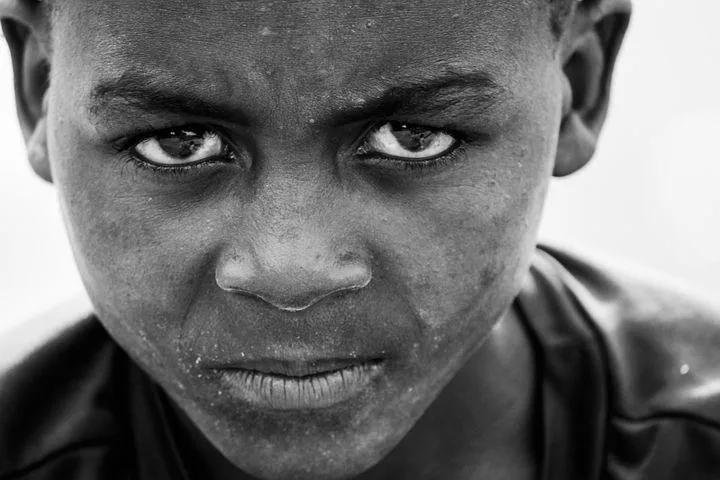
Everyone Loves Success
ROI TALKS
Roi Talks Blog

Feelings Are Not Real. Feelings Are A Reaction To A Perceived Wound That Has Never Been Healed
What if the essence of our emotional world, the very core of our being, is shrouded in a veil of illusion?
Picture yourself standing at the precipice of an emotional abyss, poised to plunge into the depths of your own psyche, as emotions and feelings whisper like the wind, guiding each step you take. Are they as tangible as they appear? Dare we question the reality of our own feelings, pondering if they are but reactions to a perceived wound that has never been healed?
I ask this because I heard someone say "Feelings are not real. Feelings are a reaction to a perceived wound that has never been healed". To confront this conundrum let us embark on an odyssey into the heart of our emotional selves, unravelling the intricate dance between emotions and feelings. Together, let us journey into the unknown, illuminated by the profound wisdom of esteemed thinkers and strengthened by groundbreaking research that shatters the boundaries of our understanding.
What are emotions?
Emotions are physiological responses to stimuli, rooted in the brain's limbic system. They are typically brief and intense, serving as a way for our bodies to react to different situations. Emotions, such as happiness, sadness, anger, and fear, are universal and experienced by people across cultures. Moreover, emotions play a crucial role in our survival, as they trigger responses that enable us to adapt to various circumstances. For example, fear can prompt us to flee from danger, while anger can motivate us to address perceived injustices. Overall, emotions serve as a biological compass, guiding us through the complexities of life.
What are feelings?
Feelings, on the other hand, are subjective experiences that arise from our interpretation of emotions. They are more complex and long-lasting, influenced by personal experiences, beliefs, and memories. Feelings are unique to each individual, as they result from our own perception of the world and emotional experiences. Unlike emotions, feelings cannot be universally categorized, as they are deeply personal and subjective. It is through our feelings that we assign meaning to our emotions, shaping our thoughts, behaviours, and relationships. Thus, feelings play a pivotal role in defining our individuality and shaping the lens through which we view the world.
Major Emotions and Their Meanings
According to research by psychologist Paul Ekman, there are six basic emotions that are universally recognized and experienced across cultures. These are:
Happiness - A state of well-being and contentment, often accompanied by feelings of joy and satisfaction.
Sadness - A state of emotional pain, often characterized by feelings of sorrow, grief, or loss.
Anger - A strong emotional response to perceived injustice or frustration, which can lead to feelings of resentment or hostility.
Fear - A primal response to perceived danger or threat, accompanied by feelings of anxiety, worry, or dread.
Disgust - A reaction to something perceived as repulsive or offensive, leading to feelings of revulsion or aversion.
Surprise - A sudden and unexpected event that provokes feelings of astonishment, amazement, or disbelief.
Associated Feelings with Major Emotions
Happiness - Joy, satisfaction, pleasure, contentment, delight, and amusement.
Sadness - Sorrow, grief, despair, melancholy, disappointment, and loneliness.
Anger - Resentment, irritation, frustration, rage, annoyance, and bitterness.
Fear - Anxiety, worry, dread, panic, apprehension, and unease.
Disgust - Revulsion, aversion, repugnance, distaste, and loathing.
Surprise - Astonishment, amazement, wonder, disbelief, and bewilderment.
Frameworks and Insights on "Feelings are not real. Feelings are a reaction to a perceived wound that has never been healed"
Thich Nhat Hanh:
Framework: Mindfulness and Compassion
Insight: Thich Nhat Hanh, a renowned Zen master, emphasizes the importance of practising mindfulness and compassion to accept, understand, and process our feelings. By being fully present with our emotions, we can recognize the origin of our feelings, including any perceived wounds, and cultivate self-awareness and healing. Thich Nhat Hanh teaches that, through mindfulness, we can embrace our emotions without judgment, allowing us to transform and release any lingering pain or suffering.
Dr Gabor Mate:
Framework: Trauma and Unresolved Emotional Pain
Insight: Dr Gabor Mate, a leading expert on addiction and trauma, highlights the link between unresolved emotional pain and various manifestations such as physical illness and addictive behaviour. He asserts that the emotional wounds we carry, often originating from childhood experiences, can shape our feelings and reactions throughout life. By addressing the root cause of emotional pain through therapy, self-reflection, or other means, individuals can achieve healing and emotional growth, leading to a more balanced understanding of their feelings.
Mieko Kamiya:
Framework: Ikigai (Reason for Being)
Insight: Mieko Kamiya, a Japanese psychiatrist and author, explores the concept of ikigai as a key to emotional fulfilment and resilience. By understanding and pursuing our ikigai, we can find a sense of purpose that transcends past emotional wounds, allowing us to view our feelings in the context of a more meaningful and joyful life. Mieko Kamiya suggests that finding and embracing our ikigai can bring about a sense of balance and harmony within ourselves, helping us navigate our emotions and feelings more effectively.
Dr. David R. Hawkins:
Framework: Scale of Consciousness
Insight: Dr David Hawkins, a renowned psychiatrist and spiritual teacher, developed a scale of consciousness that maps different emotional states, with higher levels of consciousness associated with positive emotions and spiritual growth, and lower levels linked to negative emotions and suffering. By striving to elevate our consciousness through practices like meditation, self-reflection, and personal growth, we can transcend past wounds and embrace healthier emotional states. Dr David Hawkins' work illustrates the potential for transformation when we consciously work to raise our vibrational frequency.
As we stand on the threshold of a new understanding, the revelation of the illusory nature of feelings leaves us breathless, yet empowered. Our journey into the depths of emotions and feelings has led us to a place where we can see the potential for healing and transformation. Guided by the wisdom of Thich Nhat Hanh, Dr Gabor Mate, Mieko Kamiya, and Dr David R. Hawkins, we have peered into the shadows of our emotional selves, confronting the wounds that have long shaped our perception of reality.
The time has come to amplify our awareness, challenge the very foundation of our emotional existence, and dare to heal. In the process, we can cultivate a deeper, more authentic connection with ourselves and others, embracing the power that lies within our own hearts and minds. Let us carry the lessons we have learned on this journey with us, stepping boldly into a future filled with newfound understanding, acceptance, and boundless growth potential.
ROI TALKS™
Marina Plaza - Office 1004 -1006
Dubai Marina, Dubai, UAE




